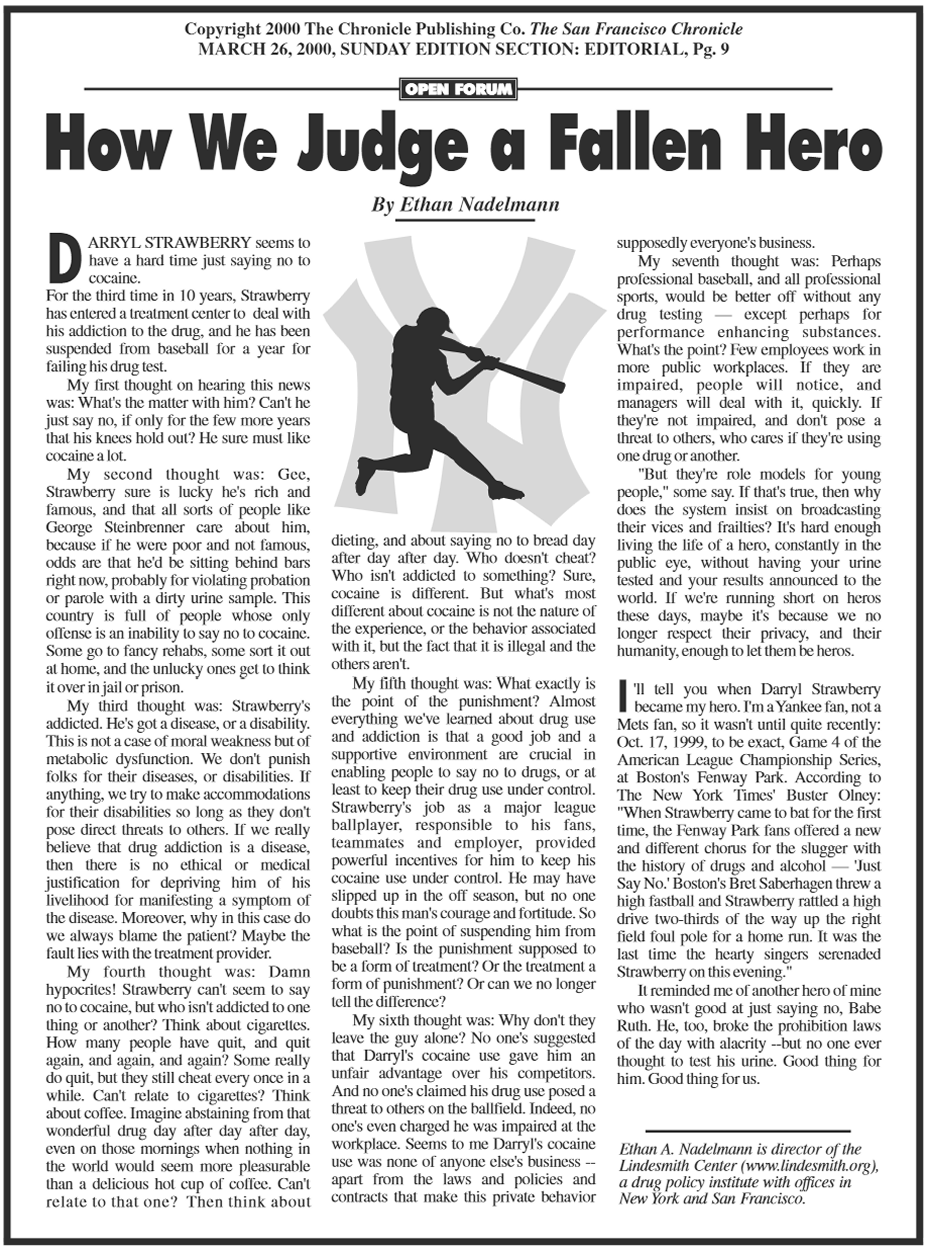027
"How We Judge a Fallen Hero" An insightful editorial on disgraced athlete Darryl Strawberry by Ethan Nadelmann, Director of the Lindesmith Center drug policy institute. Published in the San Francisco Chronicle and the Philadelphia Daily News, March 2000. Also available in Portable Document Format (PDF).
Download PDF

